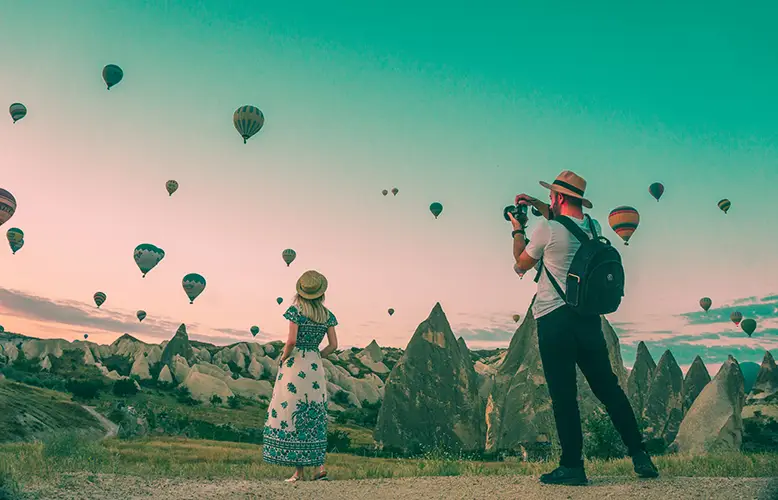In the past, traveling always implied going out into the unknown. If you were lucky, you knew someone who went there, or you had a travelogue in your library. Usually, it was an article about the place in a magazine that probably inspired you to go there to begin with. Today, on the other hand, you have so many amazing resources that will allow you to figure out exactly where you are going. Here are some tips to help you use these resources to the best of your abilities.

- Check if you’re subject to price discrimination
First of all, you have to get familiar with the concept of price discrimination. Some venues and businesses will charge you more because you come from a more affluent region. This is not just a huge problem; it’s a waste of resources in a scenario where you get no extra value in return.
One of the easiest ways to avoid this is to start using VPN. This way, you can “change” your location and see if the price is really what it says on the site or if it’s targeting you because it believes that you can afford more.
Now, keep in mind that there’s a chance that the cost won’t change. In that scenario, the cost is fixed, and you can take it or leave it. At the very least, you’ll have peace of mind and know that you’re not being scammed into paying more.
According to software reviews expert Aleksandar Stevanovic, if you do decide to take the VPN research route, you can rest assured that this is not the last time you need it during this preparation stage. You’ll also be able to check local content availability (since geo-restrictions are a serious issue). This is why it’s so important that you pick the best VPN service available before you travel.
- Study online maps
One of the first things you need to remember when traveling is that a plan must include a detailed itinerary to matter at all. However, you can’t just go to a post talking about the top X places to visit and then add them to your list. You actually need to do some research.
First, you want to use amazing free resources known as Google Earth and Street View. This way, you can get a visual representation of your itinerary and even distances (with average travel times between locations. In fact, with Google Street View, you can even see what the place looks like while traveling around it on foot.
There are so many amazing online maps, but you may even consider downloading an offline map just so that you have it in case you are without an internet connection.
You can also explore the list of local business registries (Google My Business, Yelp, etc.) to check if there’s anything worth seeing there.
Killing spontaneity is not the worst thing in the world. This is especially the case for traveling students who are on a tighter budget and have to get back a bit sooner. In fact, this approach is arguably the best way for them to get a chance to experience the journey to the fullest with as few restrictions as possible.
- Read news with specific keywords
This is a neat trick for you to figure out what’s going on in the neighborhood in question. Namely, instead of just looking up the city, try looking at the neighborhood that you’ll be staying in. This way, you’ll get a bit more accurate representation of what’s going on.
At the same time, you need to keep in mind that it’s fearmongering that sells papers. If there are 50 peaceful days in a row, this just means that there’s nothing to report on; however, if there are just three robberies over the past year, this is the first string of news that will pop up on your feed, and it will seem like the area is especially unsafe.
Keep in mind that you’re not just reading to learn about crime. You are also interested in a few other things.
For instance, you want to know if there are any events in the area around the time of your arrival. This way, you can plan your schedule around it. You can use the opportunity to visit a concert or move your trip by a week to avoid a massive political rally.
Even if you don’t plan to do any of these two things, it’s always better to know the situation in advance.
- Read (and critically assess) travel blogs and vlogs
Travel blogs are, generally, a great source of information. First of all, they’re traveler-minded, which means that they’ll focus really hard on all the aspects of traveling that their audience is really interested in.
Also, any respectable travel blogger knows that their reputation is their most valuable asset, which is why they’re unlikely to risk compromising it just so that they can get a minor sponsored deal. There are such bloggers, but the community quickly recognizes them.
Most importantly, good travel bloggers are not making reviews. They’re telling stories. In other words, they can transport you there thematically and help you figure out what it would feel like to be out there.
Most importantly, you have to approach this issue as critically as possible. In other words, you have to understand that these bloggers may have sponsors and that they are, before anything else, not in the travel but the entertainment industry.
This is why you cannot take their posts at face value.
Discarding all of these opinions and stories because of this is just as bad of a practice. If you know how to approach the subject matter critically, you’ll be able to extract valuable insights even when the information in question is scarce.
- Utilize social media
One of the most interesting things about modern travel is that you can actually find a person in the target location before you ever set foot there. This way, you can already have a guide or even a date there.
Even dating apps allow something like this. You see, on platforms like Tinder, you can set up the metric by which you’ll be at a target destination from X day until Y day. Then, you will start seeing local matches in advance of your travel so that you can already have a date by the time you get there.
In correspondence with locals and by reading comments from local pages, you’ll get more organic insight than by going through volumes of reviews.
There are a few ways in which social media can help you beyond planning and preparation, as well.
For instance, when you have already met people at the target location, you can add them to your social media and stay in touch with them even when you get back home.
Most importantly, you can use social media to stay in touch with people back home during your entire visit. This way, you elevate both the safety and convenience of your travel.
You need as many different sources of information as you can get
A lot of people make a false presumption that they can find a “perfect” source of information and just lean into it. In reality, research requires a lot of critical thinking and drawing information from different sources (ideally even different source types). Sure, in an ideal world, you’d have a close friend who traveled to the target location to retell you all as it is, but even then, their experience may not be a 1:1 representation of what your experience will be like.





